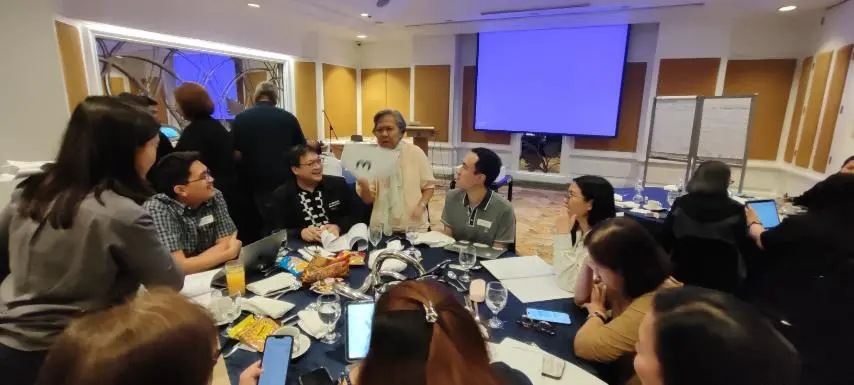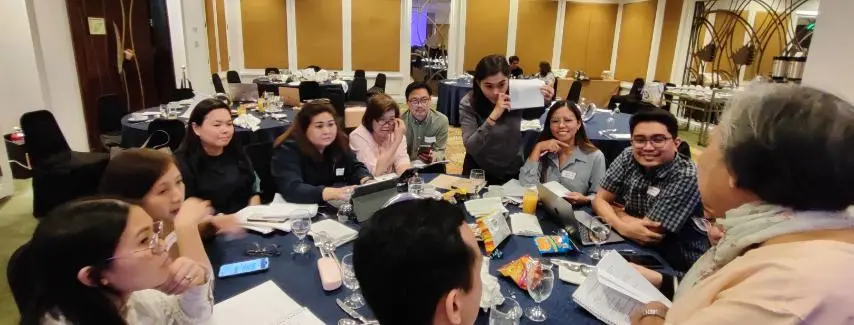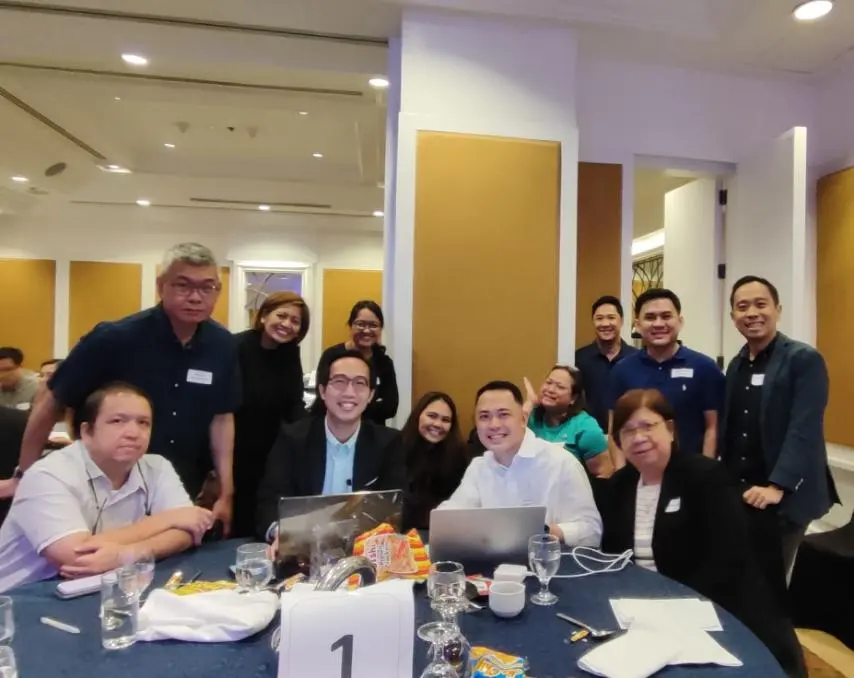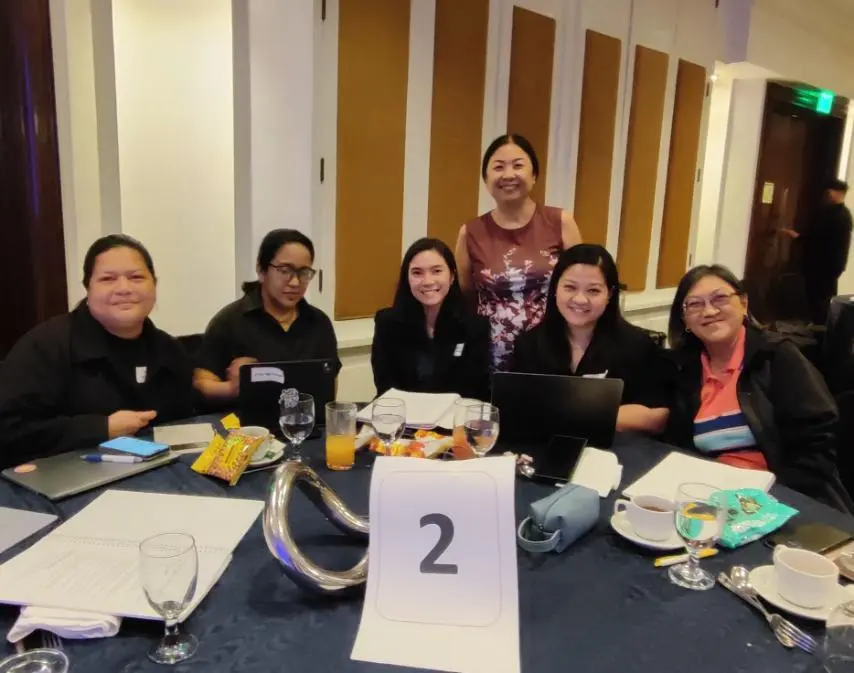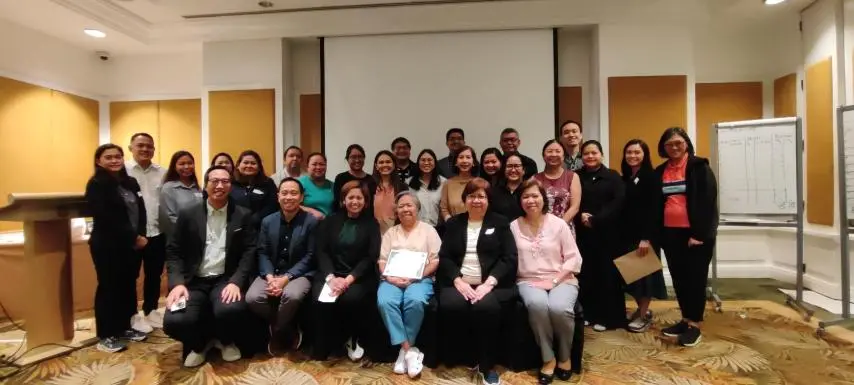August 9, 2025 – Mandaluyong City — Thirty-two participants from various Medical Oncology training institutions gathered at the EDSA Shangri-La Hotel for a one-day Test Construction Workshop led by Dr. Nenita A. Collantes, organized by the Philippine Society of Medical Oncology (PSMO) Training Committee. Dr. Collantes, a Master in Health Professions Education degree holder, a past Chair of the Philippine Specialty Board in Internal Medicine and Philippine Specialty Board in Nephrology, was likewise the expert facilitator of our Outcome-Based Fellowship Training program in Medical Oncology (OBFTP-MO) Book 2 which was drafted last March 13-14, 2025. The workshop ran from 11:00 a.m. to 6:00 p.m. and was designed to equip trainers with the knowledge and skills to create valid, reliable, and high-quality test questions for various written examinations of medical oncology fellows-in-training across the different hospitals.
The activity’s main objective was to train the trainers in producing examination content that meets the rigorous standards required for PSMO’s diverse assessment formats. Participants were guided through five specific objectives:
- Acquiring the basic principles in test construction.
- Critiquing sets of test items for clarity, accuracy, and relevance.
- Constructing test blueprints based on year level competency and program content outlined in the OBFTP-MO Book 2
- Practicing the determination of the Minimum Pass Level (MPL).
- Performing item analysis on a given set of examination questions.
Throughout the day, Dr. Collantes provided interactive lectures, small group discussions, and hands-on activities requiring real-time output, ensuring that participants could immediately apply the concepts learned. By the end of the session, attendees expressed greater confidence in developing assessments that not only measure knowledge accurately but also uphold the integrity of exam-question development.
This initiative is part of PSMO’s continuous effort to maintain excellence in Medical Oncology education and to ensure that in-training examinations remain a fair and robust measure of trainee knowledge and competence during their 2-3 year fellowship.
